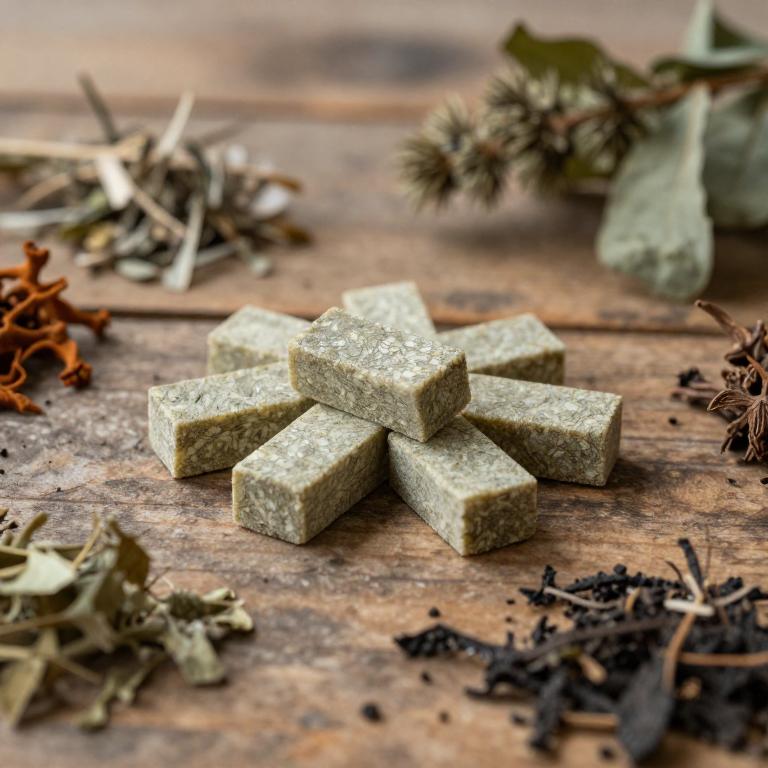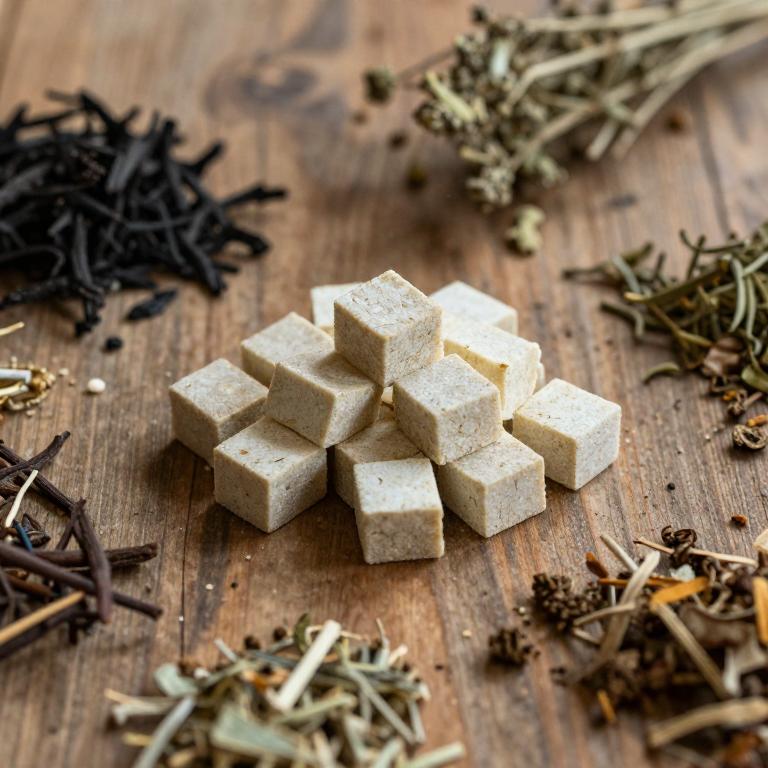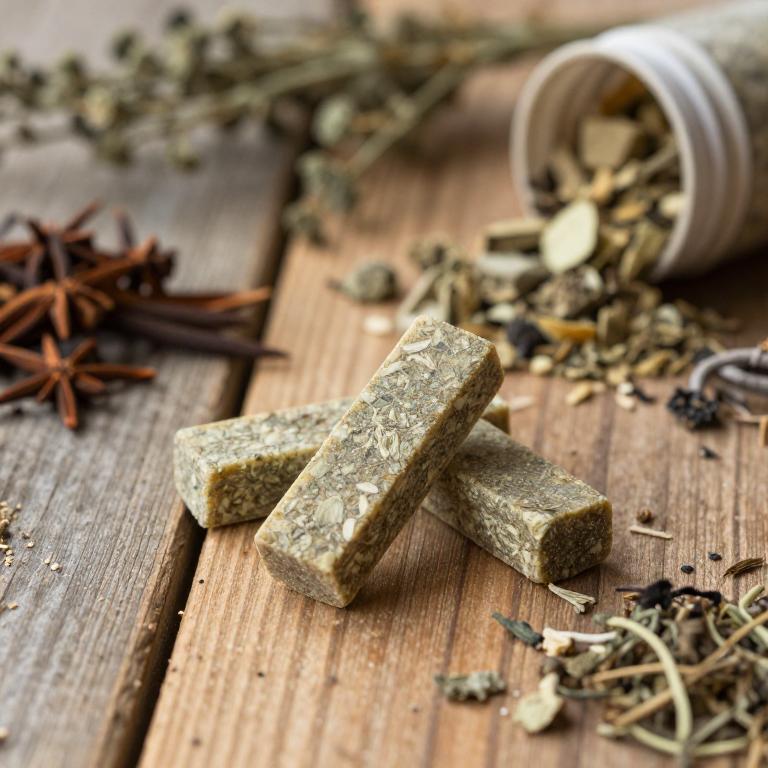10 Best Herbal Lozenges For Chest Congestion

Herbal lozenges are commonly used to alleviate symptoms of chest congestion by providing soothing relief to the throat and reducing inflammation in the respiratory tract.
These lozenges often contain natural ingredients such as eucalyptus, ginger, licorice root, and thyme, which have antimicrobial and expectorant properties. They work by loosening mucus and making it easier to expel, thereby easing breathing and reducing the feeling of pressure in the chest. Unlike over-the-counter medications, herbal lozenges are generally considered safer for long-term use and may be a preferred option for individuals seeking natural remedies.
However, it is important to consult a healthcare provider before using them, especially if symptoms persist or worsen.
Table of Contents
- 1. Eucalyptus (Eucalyptus globulus)
- 2. Ginger (Zingiber officinale)
- 3. Peppermint (Mentha piperita)
- 4. Fennel (Foeniculum vulgare)
- 5. Licorice (Glycyrrhiza glabra)
- 6. Thyme (Thymus vulgaris)
- 7. Scots pine (Pinus sylvestris)
- 8. Salvia (Salvia officinalis)
- 9. Rosemary (Rosmarinus officinalis)
- 10. Ceylon cinnamon (Cinnamomum zeylanicum)
1. Eucalyptus (Eucalyptus globulus)

Eucalyptus globulus herbal lozenges are a natural remedy designed to alleviate symptoms of chest congestion by utilizing the therapeutic properties of eucalyptus oil, which is known for its decongestant and anti-inflammatory effects.
These lozenges work by soothing irritated throat tissues and helping to loosen mucus, making it easier to expel from the respiratory tract. They are particularly beneficial for individuals experiencing symptoms such as coughing, sore throat, and a stuffy chest, often associated with colds or bronchitis. The menthol and other aromatic compounds in the lozenges also provide a cooling sensation that can further ease breathing and reduce discomfort.
As a herbal alternative, they offer a gentle and effective way to support respiratory health without the use of harsh chemicals or synthetic medications.
2. Ginger (Zingiber officinale)

Zingiber officinale, commonly known as ginger, has been traditionally used for its therapeutic properties, including its ability to alleviate chest congestion.
Ginger herbal lozenges are formulated to provide a soothing effect on the throat and help break up mucus in the respiratory tract. These lozenges contain the active compounds of ginger, such as gingerol and shogaol, which have anti-inflammatory and expectorant properties. They are often recommended as a natural remedy for mild to moderate chest congestion caused by colds or respiratory infections.
Regular use of ginger lozenges may help reduce discomfort and promote easier breathing by supporting the body's natural clearance of mucus.
3. Peppermint (Mentha piperita)

Mentha piperita, commonly known as peppermint, is often used in herbal lozenges to alleviate symptoms of chest congestion due to its soothing and decongestant properties.
These lozenges work by providing a cooling effect that helps ease the discomfort associated with throat irritation and excess mucus. The menthol in peppermint acts as a natural expectorant, helping to loosen and expel mucus from the respiratory tract. Peppermint lozenges are typically made with natural ingredients, making them a safe alternative for those seeking non-pharmaceutical relief.
They are especially beneficial for individuals who prefer herbal remedies over over-the-counter medications for mild to moderate chest congestion.
4. Fennel (Foeniculum vulgare)

Foeniculum vulgare, commonly known as fennel, is a herb often used in the form of lozenges to alleviate chest congestion due to its expectorant and anti-inflammatory properties.
These lozenges help loosen mucus in the respiratory tract, making it easier to cough up and thus providing relief from coughing and chest tightness. Fennel also contains compounds like anethol and flavonoids that may soothe irritated airways and reduce inflammation in the lungs. The warming effect of fennel lozenges can help ease breathing and promote a sense of comfort in individuals suffering from bronchitis or cold-related chest congestion.
However, it is important to consult a healthcare provider before using fennel lozenges, especially for those with allergies or underlying health conditions.
5. Licorice (Glycyrrhiza glabra)

Glycyrrhiza glabra, commonly known as licorice root, is a traditional herbal remedy often used in the form of lozenges to alleviate symptoms of chest congestion.
These lozenges work by soothing the throat and reducing inflammation in the respiratory tract, which can help ease the discomfort associated with coughing and mucus buildup. The active compounds in licorice, such as glycyrrhizin and flavonoids, have demonstrated antimicrobial and expectorant properties that may support respiratory health. When used as a complementary therapy, glycyrrhiza glabra lozenges can provide relief for mild to moderate chest congestion, though they should be used under the guidance of a healthcare professional.
It is important to note that prolonged use of licorice root may lead to side effects such as increased blood pressure, so it is best suited for short-term use.
6. Thyme (Thymus vulgaris)

Thymus vulgaris herbal lozenges are a natural remedy designed to alleviate symptoms of chest congestion by leveraging the anti-inflammatory and expectorant properties of thyme.
These lozenges contain essential oils and phytochemicals such as thymol and carvacrol, which help to loosen mucus and reduce irritation in the respiratory tract. They are particularly beneficial for individuals experiencing persistent coughing, phlegm buildup, or inflammation in the throat and chest area. The herbal formulation is typically free from harsh chemicals, making it a safe option for both adults and children.
Regular use of thymus vulgaris lozenges can provide soothing relief and support the body's natural ability to clear congestion and restore respiratory comfort.
7. Scots pine (Pinus sylvestris)

Pinus sylvestris herbal lozenges are formulated with extracts from the Scots pine tree, known for its soothing and expectorant properties.
These lozenges are specifically designed to help alleviate symptoms of chest congestion by promoting the clearance of mucus from the respiratory tract. The natural ingredients in Pinus sylvestris support respiratory health and may help reduce irritation and inflammation in the throat and lungs. They are ideal for individuals seeking a natural remedy for mild to moderate chest congestion without the use of synthetic medications.
Regular use of these lozenges can provide gentle relief and support the body's natural healing processes.
8. Salvia (Salvia officinalis)

Salvia officinalis, commonly known as sage, is a traditional herbal remedy often used in the form of lozenges to alleviate symptoms of chest congestion.
These lozenges are typically made by infusing dried sage leaves in a sugar or honey base, allowing for easy consumption and prolonged release of the plant's active compounds. Sage contains essential oils such as thujone and camphor, which may help to reduce mucus production and soothe irritated respiratory passages. The anti-inflammatory and antimicrobial properties of salvia officinalis may support respiratory health and ease breathing in individuals with chest congestion.
While generally considered safe, it is advisable to consult a healthcare professional before using sage lozenges, especially for those with chronic respiratory conditions or during pregnancy.
9. Rosemary (Rosmarinus officinalis)

Rosmarinus officinalis, commonly known as rosemary, is a medicinal herb that has been traditionally used for its aromatic and therapeutic properties.
Rosemary herbal lozenges are formulated to provide relief from chest congestion by leveraging the plant's natural decongestant and anti-inflammatory effects. These lozenges often contain essential oils like camphor and eucalyptol, which help to loosen mucus and soothe irritated airways. The menthol-like compounds in rosemary can also provide a cooling sensation that helps to ease breathing and reduce the feeling of congestion.
Regular use of rosemary herbal lozenges may support respiratory health and offer a natural alternative for those seeking relief from mild chest congestion.
10. Ceylon cinnamon (Cinnamomum zeylanicum)

Cinnamonum zeylanicum, commonly known as Ceylon cinnamon, is often used in herbal lozenges to help alleviate symptoms of chest congestion.
These lozenges work by leveraging the anti-inflammatory and antimicrobial properties of cinnamon, which can help reduce mucus buildup and soothe irritated airways. The aromatic compounds in cinnamon also have a warming effect, promoting easier breathing and easing discomfort. When used as part of a holistic approach to respiratory health, these lozenges may support natural healing processes.
However, it is advisable to consult a healthcare professional before using them, especially for individuals with underlying health conditions or those taking other medications.